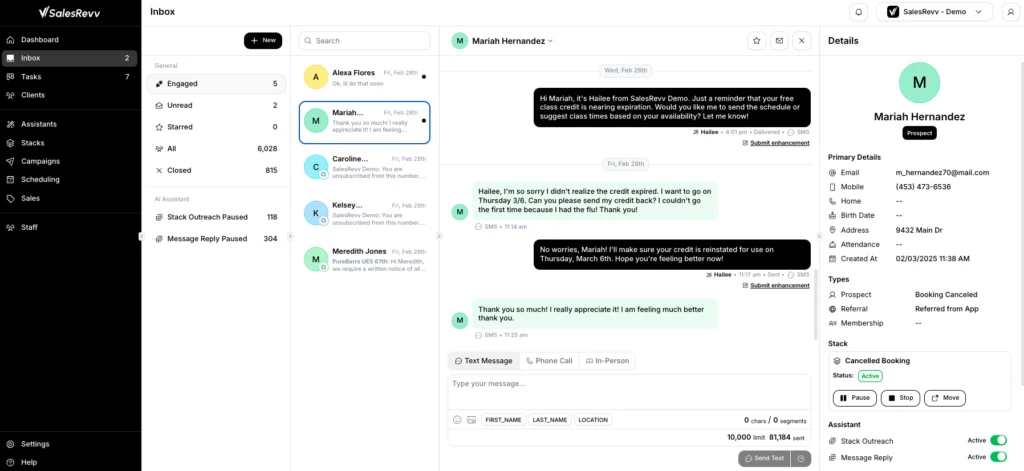This week’s column dives into Mary Meeker’s latest report, and also looks at how Road Runner Sports is elevating its customer experience
This story is part of “The Stack,” a weekly column that takes a deep dive into the ways tech companies are shaping the future of fitness and wellness
I was surprised to see an email in my inbox about a new report from Bond, the venture capital firm based in San Francisco and founded by Mary Meeker. Following the link brought me to a massive 340-page report. It was like Christmas in July.
If you don’t know, Meeker is known as the “Queen of the Internet.” While at Morgan Stanley, Meeker and Chris DePuy published “The Internet Report,” which guided investors through the dot-com boom era and beyond. So, what does she and her co-authors of “Trends – Artificial Intelligence” have to say today? A lot.
The report covers everything from soup to nuts, and includes chapters on AI deployment, usage, costs, growth, the competitive landscape, capital expenditures and IRL uses such as at work.
The report paints an AI landscape using numerous graphs and charts, mostly festooned with arrows that go up, but also with some bleak data points such as “monetization threats.”
One of the key takeaways of the report is the speed of change occurring.
“To say the world is changing at unprecedented rates is an understatement,” the report’s authors said. “Rapid and transformative technology innovation/adoption represent key underpinnings of these changes. As does leadership evolution for the global powers.”
The report noted the rise of Google, Alibaba and Facebook – each experiencing growth arcs that were relatively steady.
“Fast forward to today with the world’s organized, connected and accessible information being supercharged by artificial intelligence, accelerating computing power and semi-borderless capital … all driving massive change,” the authors of the report said. “Sport provides a good analogy for AI’s constant improvements. As athletes continue to wow us and break records, their talent is increasingly enhanced by better data/inputs/training. The same is true for businesses, where computers are ingesting massive datasets to get smarter and more competitive.”
Over time, the speed of change is only expected to increase, so hang on.
If you want to learn more, download the report here.
The New Kid on the Block
The latest development in AI is “Agentic AI,” which is the spooky one that works autonomously with little human oversight. Instead, it runs on its own to reach specific goals. This form of AI joins the ranks of other powerful models, such as predictive and generative AI. In truth, Agentic AI is not so much spooky as it is advanced.
For the retail, hospitality and fitness industries, companies such as Profitmind are working with businesses to create an “intelligence layer” with Agentic AI that can assist in price optimization, performance analysis and inventory analysis. It can even be used in competitive and white space analysis.
In IBM’s latest “Global C-suite Series” report, analysts polled CEOs and looked at how Agentic AI can help businesses move from profitability to greater productivity.
“Technology promises to help them make smarter, better decisions that drive growth and stakeholder value,” the report’s authors said. “AI agents, in particular, offer predictive capabilities that let teams see the impact of change before they lift a finger. This autonomous, adaptive and self-iterating technology is already dramatically changing how businesses operate.”
Business leaders are taking note. IBM’s survey of executives found that 61 percent of CEOs polled “say their organization is actively adopting AI agents and preparing to implement them at scale.”
Tying Everything Together
Road Runner Sports, the nationwide fitness retailer, recently teamed up with unified commerce solutions leader Aptos to implement the tech company’s modern, mobile-first Point of Sale (POS) platform, Aptos One. This strategic deployment, extending across Road Runner Sports’ 50-plus U.S. stores, aims to significantly enhance customer engagement and omnichannel capabilities.
Deploying Aptos One is in response to growing consumer demands for an overall better shopping experience, whether it is online, in a physical store or at a pop-up shop. Personalization and seamless experiences are key.
Aptos said the integration of Aptos One will seamlessly connect with Road Runner Sports’ existing Aptos SaaS applications, including Merchandising, Order Management System (OMS), Customer Relationship Management (CRM) and Sales Audit. The company said this connectivity will enable highly personalized customer service, real-time inventory visibility and a unified experience across online and offline interactions.
San Diego-based Road Runner Sports is renowned for its diverse selection of athletic shoes, apparel and fitness devices. Their shoppers are fiercely loyal and expect a high level of personalization. The company’s commitment to inspiring active and healthy lifestyles is exemplified by its unique Fit Finder technology, which provides in-store and online customers with personalized shoe fittings, and its popular membership program, offering extended guarantees and exclusive benefits.
“We’ve redefined the traditional shoe buying experience,” Tom Compogiannis, chief financial officer at Road Runner Sports, said in a statement. “Our interest in Aptos One stemmed from our continuous pursuit of elevating our customers’ journey.”

Beyond in-store enhancements, Compogiannis foresees significant opportunities for Aptos One to facilitate Road Runner Sports’ presence at external events such as pop-up shops, expos and gatherings.
“We want to interact with Road Runner Sports customers and potential customers wherever they are,” Compogiannis added. “As a cloud-native, mobile-first solution, Aptos One makes it easy to conduct selling activities just about anywhere.”
This capability allows store teams to engage with local communities, expanding customer acquisition and sales opportunities outside traditional store environments.”
Jeremy Grunzweig, general manager at Aptos, emphasized that Aptos One was developed in response to retailer feedback, combining robust enterprise-grade, omnichannel POS functionality with a mobile-first design.
For inquiries and tips related to “The Stack,” please reach out to [email protected]



























